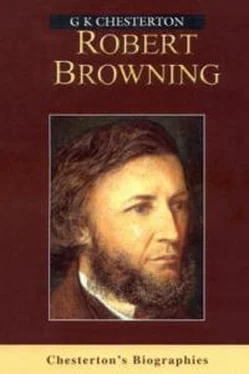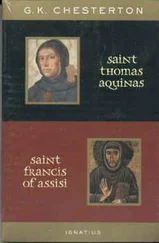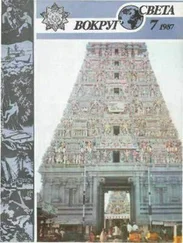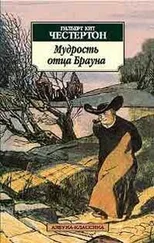Гилберт Честертон - Robert Browning
Здесь есть возможность читать онлайн «Гилберт Честертон - Robert Browning» весь текст электронной книги совершенно бесплатно (целиком полную версию без сокращений). В некоторых случаях можно слушать аудио, скачать через торрент в формате fb2 и присутствует краткое содержание. Год выпуска: 2014, Издательство: epubBooks Classics, Жанр: Биографии и Мемуары, на английском языке. Описание произведения, (предисловие) а так же отзывы посетителей доступны на портале библиотеки ЛибКат.
- Название:Robert Browning
- Автор:
- Издательство:epubBooks Classics
- Жанр:
- Год:2014
- ISBN:нет данных
- Рейтинг книги:5 / 5. Голосов: 1
-
Избранное:Добавить в избранное
- Отзывы:
-
Ваша оценка:
- 100
- 1
- 2
- 3
- 4
- 5
Robert Browning: краткое содержание, описание и аннотация
Предлагаем к чтению аннотацию, описание, краткое содержание или предисловие (зависит от того, что написал сам автор книги «Robert Browning»). Если вы не нашли необходимую информацию о книге — напишите в комментариях, мы постараемся отыскать её.
Robert Browning — читать онлайн бесплатно полную книгу (весь текст) целиком
Ниже представлен текст книги, разбитый по страницам. Система сохранения места последней прочитанной страницы, позволяет с удобством читать онлайн бесплатно книгу «Robert Browning», без необходимости каждый раз заново искать на чём Вы остановились. Поставьте закладку, и сможете в любой момент перейти на страницу, на которой закончили чтение.
Интервал:
Закладка:
Browning, in such poems as "Bishop Blougram's Apology," breaks this first mask of goodness in order to break the second mask of evil, and gets to the real goodness at last; he dethrones a saint in order to humanise a scoundrel. This is one typical side of the real optimism of Browning. And there is indeed little danger that such optimism will become weak and sentimental and popular, the refuge of every idler, the excuse of every ne'er–do–well. There is little danger that men will desire to excuse their souls before God by presenting themselves before men as such snobs as Bishop Blougram, or such dastards as Sludge the Medium. There is no pessimism, however stern, that is so stern as this optimism, it is as merciless as the mercy of God.
It is true that in this, as in almost everything else connected with Browning's character, the matter cannot be altogether exhausted by such a generalisation as the above. Browning's was a simple character, and therefore very difficult to understand, since it was impulsive, unconscious, and kept no reckoning of its moods. Probably in a great many cases, the original impulse which led Browning to plan a soliloquy was a kind of anger mixed with curiosity; possibly the first charcoal sketch of Blougram was a caricature of a priest. Browning, as we have said, had prejudices, and had a capacity for anger, and two of his angriest prejudices were against a certain kind of worldly clericalism, and against almost every kind of spiritualism. But as he worked upon the portraits at least, a new spirit began to possess him, and he enjoyed every spirited and just defence the men could make of themselves, like triumphant blows in a battle, and towards the end would come the full revelation, and Browning would stand up in the man's skin and testify to the man's ideals. However this may be, it is worth while to notice one very curious error that has arisen in connection with one of the most famous of these monologues.
When Robert Browning was engaged in that somewhat obscure quarrel with the spiritualist Home, it is generally and correctly stated that he gained a great number of the impressions which he afterwards embodied in "Mr. Sludge the Medium." The statement so often made, particularly in the spiritualist accounts of the matter, that Browning himself is the original of the interlocutor and exposer of Sludge, is of course merely an example of that reckless reading from which no one has suffered more than Browning despite his students and societies. The man to whom Sludge addresses his confession is a Mr. Hiram H. Horsfall, an American, a patron of spiritualists, and, as it is more than once suggested, something of a fool. Nor is there the smallest reason to suppose that Sludge considered as an individual bears any particular resemblance to Home considered as an individual. But without doubt "Mr. Sludge the Medium" is a general statement of the view of spiritualism at which Browning had arrived from his acquaintance with Home and Home's circle. And about that view of spiritualism there is something rather peculiar to notice. The poem, appearing as it did at the time when the intellectual public had just become conscious of the existence of spiritualism, attracted a great deal of attention, and aroused a great deal of controversy. The spiritualists called down thunder upon the head of the poet, whom they depicted as a vulgar and ribald lampooner who had not only committed the profanity of sneering at the mysteries of a higher state of life, but the more unpardonable profanity of sneering at the convictions of his own wife. The sceptics, on the other hand, hailed the poem with delight as a blasting exposure of spiritualism, and congratulated the poet on making himself the champion of the sane and scientific view of magic. Which of these two parties was right about the question of attacking the reality of spiritualism it is neither easy nor necessary to discuss. For the simple truth, which neither of the two parties and none of the students of Browning seem to have noticed, is that "Mr. Sludge the Medium" is not an attack upon spiritualism. It would be a great deal nearer the truth, though not entirely the truth, to call it a justification of spiritualism. The whole essence of Browning's method is involved in this matter, and the whole essence of Browning's method is so vitally misunderstood that to say that "Mr. Sludge the Medium" is something like a defence of spiritualism will bear on the face of it the appearance of the most empty and perverse of paradoxes. But so, when we have comprehended Browning's spirit, the fact will be found to be.
The general idea is that Browning must have intended "Sludge" for an attack on spiritual phenomena, because the medium in that poem is made a vulgar and contemptible mountebank, because his cheats are quite openly confessed, and he himself put into every ignominious situation, detected, exposed, throttled, horsewhipped, and forgiven. To regard this deduction as sound is to misunderstand Browning at the very start of every poem that he ever wrote. There is nothing that the man loved more, nothing that deserves more emphatically to be called a speciality of Browning, than the utterance of large and noble truths by the lips of mean and grotesque human beings. In his poetry praise and wisdom were perfected not only out of the mouths of babes and sucklings, but out of the mouths of swindlers and snobs. Now what, as a matter of fact, is the outline and development of the poem of "Sludge"? The climax of the poem, considered as a work of art, is so fine that it is quite extraordinary that any one should have missed the point of it, since it is the whole point of the monologue. Sludge the Medium has been caught out in a piece of unquestionable trickery, a piece of trickery for which there is no conceivable explanation or palliation which will leave his moral character intact. He is therefore seized with a sudden resolution, partly angry, partly frightened, and partly humorous, to become absolutely frank, and to tell the whole truth about himself for the first time not only to his dupe, but to himself. He excuses himself for the earlier stages of the trickster's life by a survey of the border–land between truth and fiction, not by any means a piece of sophistry or cynicism, but a perfectly fair statement of an ethical difficulty which does exist. There are some people who think that it must be immoral to admit that there are any doubtful cases of morality, as if a man should refrain from discussing the precise boundary at the upper end of the Isthmus of Panama, for fear the inquiry should shake his belief in the existence of North America. People of this kind quite consistently think Sludge to be merely a scoundrel talking nonsense. It may be remembered that they thought the same thing of Newman. It is actually supposed, apparently in the current use of words, that casuistry is the name of a crime; it does not appear to occur to people that casuistry is a science, and about as much a crime as botany. This tendency to casuistry in Browning's monologues has done much towards establishing for him that reputation for pure intellectualism which has done him so much harm. But casuistry in this sense is not a cold and analytical thing, but a very warm and sympathetic thing. To know what combination of excuse might justify a man in manslaughter or bigamy, is not to have a callous indifference to virtue; it is rather to have so ardent an admiration for virtue as to seek it in the remotest desert and the darkest incognito.
This is emphatically the case with the question of truth and falsehood raised in "Sludge the Medium." To say that it is sometimes difficult to tell at what point the romancer turns into the liar is not to state a cynicism, but a perfectly honest piece of human observation. To think that such a view involves the negation of honesty is like thinking that red is green, because the two fade into each other in the colours of the rainbow. It is really difficult to decide when we come to the extreme edge of veracity, when and when not it is permissible to create an illusion. A standing example, for instance, is the case of the fairy–tales. We think a father entirely pure and benevolent when he tells his children that a beanstalk grew up into heaven, and a pumpkin turned into a coach. We should consider that he lapsed from purity and benevolence if he told his children that in walking home that evening he had seen a beanstalk grow half–way up the church, or a pumpkin grow as large as a wheelbarrow. Again, few people would object to that general privilege whereby it is permitted to a person in narrating even a true anecdote to work up the climax by any exaggerative touches which really tend to bring it out. The reason of this is that the telling of the anecdote has become, like the telling of the fairy–tale, almost a distinct artistic creation; to offer to tell a story is in ordinary society like offering to recite or play the violin. No one denies that a fixed and genuine moral rule could be drawn up for these cases, but no one surely need be ashamed to admit that such a rule is not entirely easy to draw up. And when a man like Sludge traces much of his moral downfall to the indistinctness of the boundary and the possibility of beginning with a natural extravagance and ending with a gross abuse, it certainly is not possible to deny his right to be heard.
Читать дальшеИнтервал:
Закладка:
Похожие книги на «Robert Browning»
Представляем Вашему вниманию похожие книги на «Robert Browning» списком для выбора. Мы отобрали схожую по названию и смыслу литературу в надежде предоставить читателям больше вариантов отыскать новые, интересные, ещё непрочитанные произведения.
Обсуждение, отзывы о книге «Robert Browning» и просто собственные мнения читателей. Оставьте ваши комментарии, напишите, что Вы думаете о произведении, его смысле или главных героях. Укажите что конкретно понравилось, а что нет, и почему Вы так считаете.










